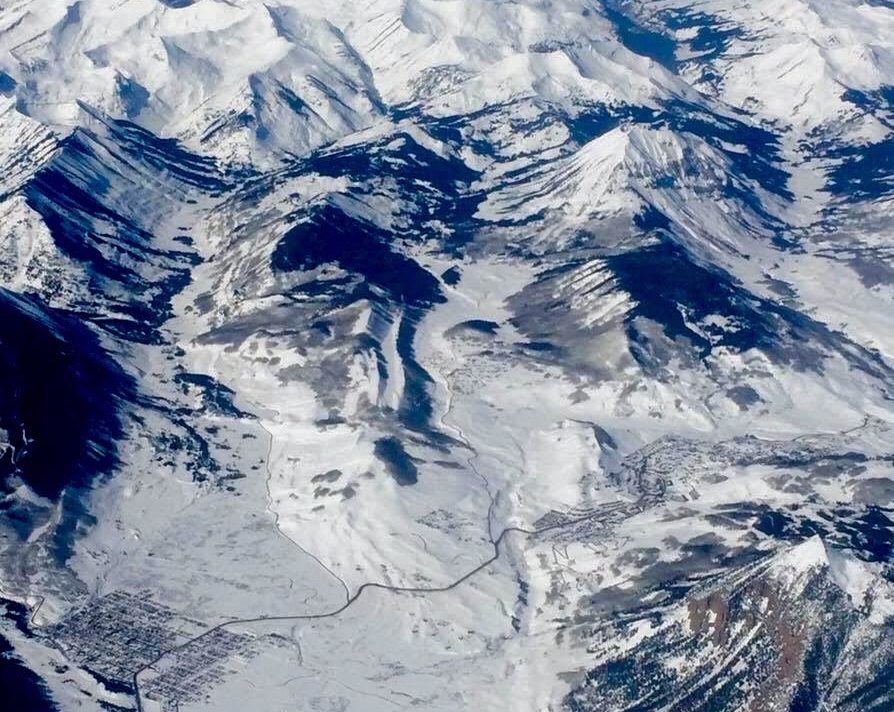WATERSHED SCIENCE COLLABORATION WORKSHOP
September 23 – 25, 2018
Crested Butte, CO
Sunday, September 23
Field Trip and Ice-breaker at RMBL (optional)
3:30–5:45 PM (optional) — Field Trip
East River CO Watershed starting at Rocky Mountain Biological Laboratory (RMBL)
6:00–8:30 (optional) — Ice Breaker at RMBL
– Ken Williams (Berkeley Lab) and Jennie Reithel (Rocky Mountain Biological Laboratory) – Intro to RMBL: overview and strategic goals
– Dinner served
– Poster popup presentations & poster session. The poster sessions will provide an opportunity for networking and more detailed discussions about projects. Optional posters will be open for all attendees and will remain up during the entire workshop. More details about the poster session will follow.
Monday, September 24
Crested Butte Mountain Resort
8:00–8:15 AM
Breakfast and registration
8:15–8:30
Welcome and Meeting Objectives – Susan Hubbard (Berkeley Lab)
8:30–10:00
Watershed Science: Key Challenges, Networks and Recent Findings. This session will focus on key watersheds and associated networks throughout the world. The presentations will describe the scientific drivers as well as key challenges, characteristics and/or enabling aspects for watershed network investigations, and may provide additional information about an exemplary observatory in the network.
– Susan Hubbard (Berkeley Lab) – DOE watershed network and the East River Watershed (15 min)
– Sue Brantley (Pennsylvania State U.) – US CZO network & Shale Hills CZO (15 min)
– Jeff McDonnell (U. Saskatchewan, virtual) – Canadian water network and the Saskatchewan Basin (15 min)
– Xin Li (NW Institute of Eco-Environment and Resources, Chinese Academy of Sciences) – Chinese CZOs and the Integrated Watershed Study in the Heihe River Basin (15 min)
– David Lesmes (U.S. DOE, Office of Science) – DOE Watershed Science (10 min)
– Discussion (20 min)
10:00–11:00 Break, Posters & Networking
11:00–2:15 Crosscutting Watershed Frontier Challenges. This session will set the stage for the afternoon Watershed Frontier Challenges Café Session, through presentations of different concepts associated with the identified five Watershed Challenge Topics. Each topic will be led by a 15 minute ‘perspective’ presentation, which describes some key advances, challenges and opportunities associated with that topic. The perspective presentation will be followed by three 4-minute pop up presentations that each discuss an aspect (new research direction, key challenge, etc.) relevant to the topic. Lunch will be provided during this session.
1. Soil-Microbe-Plant Dynamics from Native to Basin Scales
Topic perspective: Scott Saleska (U. Arizona) (15 min)
Pop ups: Dana Chadwick, Kate Maher (Stanford), Paula Matheus Carnevali (UC Berkeley) (4 min each)
2. Bedrock flow and Reactions: implications for hydroecology and watershed exports
Topic perspective: Danielle Rempe (U. Texas Austin) (15 min)
Pop ups: Burke Minsley (U.S. Geological Survey), Scott Fendorf (Stanford), Tetsu Tokunaga (Berkeley Lab) (4 min each)
3. Watershed Disturbance & Experimental Manipulation in Snow Dominated Systems
Topic Perspective: Lara Kueppers (UC Berkeley) (15 min)
Popups: Josh Sharp (Colorado School of Mines), Daniel Feldman (Berkeley Lab), Heidi Steltzer (Ft. Lewis College) (4 min each)
4. Watersheds as Integrators of Terrestrial Processes
Topic Perspective: Pete Raymond (Yale) (15 min)
Popups: Rosemary Carroll (Desert Research Institute), Tim Scheibe (Pacific NW National Lab), Ciaran Harman (John Hopkins U.) (4 min each)
5. Integration of Multi-Scale, Multi-Physics Models and Field Sensing Systems: Toward Co-Design
Topic Perspective: Praveen Kumar (U. Illinois Urbana–Champaign) (15 min)
Pop ups: Jeff Deems (U. Colorado–Boulder), Alejandro Flores (Boise State U.), Baptiste Dafflon (Berkeley Lab) (4 min each)
2:15–2:30 Break
2:30–5:00 Watershed Frontier Challenges Café. During a rotating ‘World Café’, participants will have a chance to weigh in on key questions associated with two of the five topics above (of their choice), identifying for each topic aspects such as the most exciting recent scientific advances or enabling technology, potential game-changers in 5 years, and how can we work together to realize significant advances.
Café Topic Leads
Soil-Microbe-Plant Dynamics from Native to Basin Scales (Eoin Brodie, Yuxin Wu; Berkeley Lab)
Bedrock flow and Reactions: implications for hydroecology and watershed exports (Ben Gilbert, Bhavna Arora; Berkeley Lab)
Watershed Disturbance & Experimental Manipulation in Snow Dominated Systems (Heidi Steltzer, Ft. Lewis College; Reed Maxwell, Colorado School of Mines)
Watersheds as Integrators of Terrestrial Processes (Nick Bouskill, Michelle Newcomer; Berkeley Lab)
Integration of Multi-Scale, Multi-Physics Models and Field Sensing Systems: Toward Co-Design (Dipankar Dwivedi and Charu Varadharajan, Berkeley Lab)
5:00–5:45Posters, Networking & Café Synthesis (all)
5:45–6:45 Dinner & discussion
6:45 SFA Executive Committee and Café Leads discussion with Scientific Advisory Board
Tuesday, September 25, Crested Butte Mountain Resort
8:00–8:30 AM Arrivals, breakfast; Café co-leads meet
8:30–9:00 Plenary Presentation
David Gochis (U. Corp. for Atmospheric Research) – Scientific and community activities to enable watershed to Basin scaling
9:30–11:30 Watershed Frontier Café Topic Report Outs and discussions
1. Soil-Microbe-Plant Dynamics from Native to Basin Scales (Eoin Brodie or Yuxin Wu, Berkeley Lab) (10 min + 10 min discussion)
2. Bedrock flow and Reactions: implications for hydroecology and watershed exports (Ben Gilbert or Bhavna Arora, Berkeley Lab) (10 min + 10 min discussion)
3. Watershed Disturbance & Experimental Manipulation in Snow Dominated Systems (Heidi Steltzer, Ft. Lewis College or Reed Maxwell, Colorado School of Mines) (10 min + 10 min discussion)
4. Watersheds as Integrators of Terrestrial Processes (Nick Bouskill or Michelle Newcomer, Berkeley Lab) (10 min + 10 min discussion)
5. Integration of Multi-Scale, Multi-Physics Models and Field Sensing Systems: Toward Co-Design (Dipankar Dwivedi and Charu Varadharajan, Berkeley Lab) (10 min + 10 min discussion)
11:30–12:00 PM General Discussion and Next Steps
12:00 PM Lunch and Community Workshop Adjourn
Watershed Function SFA Team Meeting and Dinner
1:00–5:30 SFA Team Meeting
5:30 Dinner & discussion

